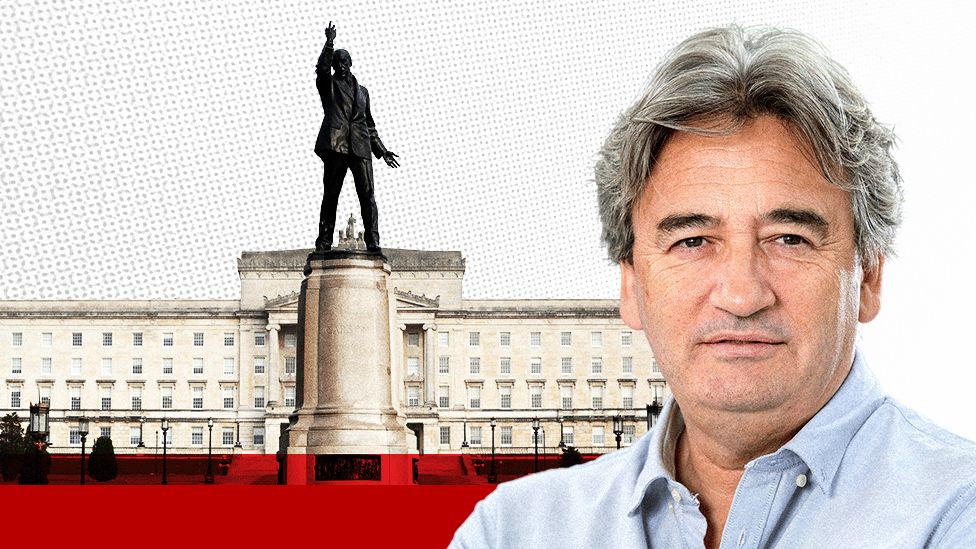-

-
-
Loading

Loading

Gail McConnell, a resident of Northern Ireland who lost her father during the Troubles, remains skeptical whenever politicians claim that history is being made in the region. She believes that too much time has been wasted and too many people have suffered for her to put much faith in rhetoric. McConnell wants to see hard work and action from politicians, rather than empty words. She sees the restoration of power-sharing and the election of an Irish nationalist first minister as just another day of government that politicians should be getting on with. McConnell's thoughts are with the victims of the Troubles, including her father, as these significant political events unfold. When McConnell was only a child, the IRA came for her father, William McConnell, who was an assistant prison governor. He was shot and killed in front of their house, leaving a lasting impact on McConnell's life. Years later, she described the IRA bullets that inflicted holes in her father's body as "perforation." As a mother, McConnell is acutely aware of the generational trauma that can result from such violence. Northern Ireland continues to face high rates of PTSD, mental health issues, suicide, and anti-depressant usage. Despite Northern Ireland's troubled past, Gail McConnell represents an outward-looking region, advocating for gender issues, climate change, and the rights of violence victims. The identity of Northern Ireland is no longer solely defined by religious or constitutional affiliation. The region has seen a significant rise in migration, with new communities forming that have no ties to the old divisions. Mixed relationships between Catholics and Protestants have also tripled since the late 1990s. McConnell remains cautiously hopeful about the future of Northern Ireland but acknowledges that there is still a long way to go. While progress has been made, significant challenges remain. The peace walls that separate Catholic and Protestant communities, known as "interface areas," still exist. Integration in schools is limited, with only about 8% of schoolchildren being educated in integrated schools. Paramilitary groups are no longer a serious threat to peace but are involved in drug dealing and instilling fear in communities. Former IRA prisoner Richard O'Rawe believes that today's events at Stormont, the seat of the Northern Irish government, offer an opportunity to address essential issues such as healthcare and youth unemployment. O'Rawe, who regrets his involvement in the IRA campaign, sees the election of a Sinn Féin first minister as a historic moment. However, he emphasizes the need for a non-confrontational approach to bring citizens, particularly unionists, together and move closer to a united Ireland. Overall, there is hope for the future of Northern Ireland, as conversations about different futures have become possible in a city that has undergone profound changes since the Troubles. However, it is crucial to remember that the constitutional question is not the only significant issue the region faces.